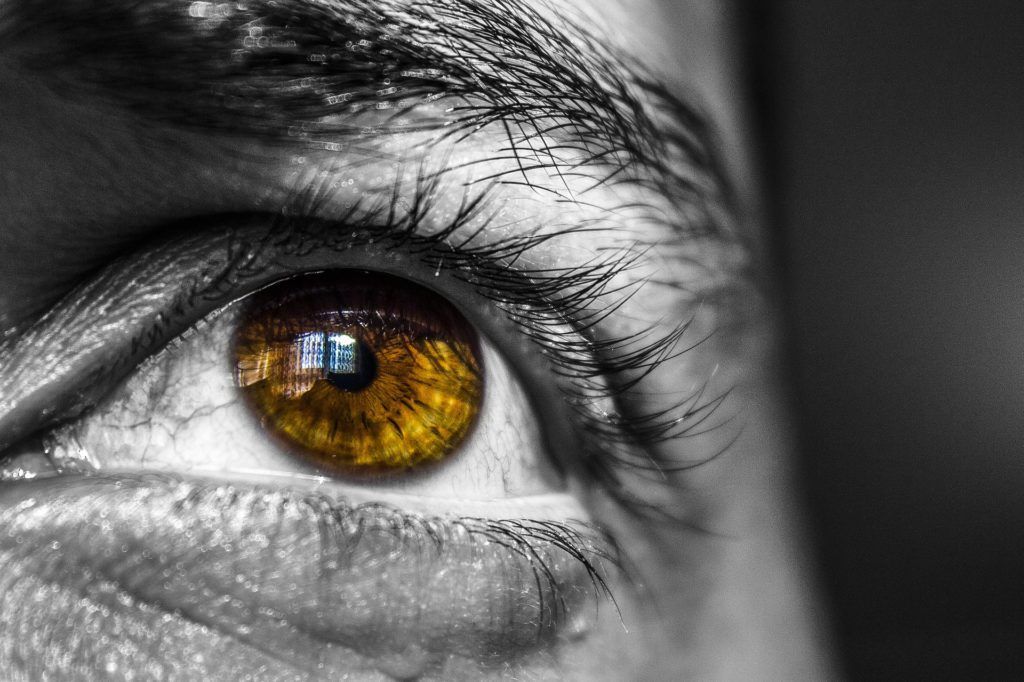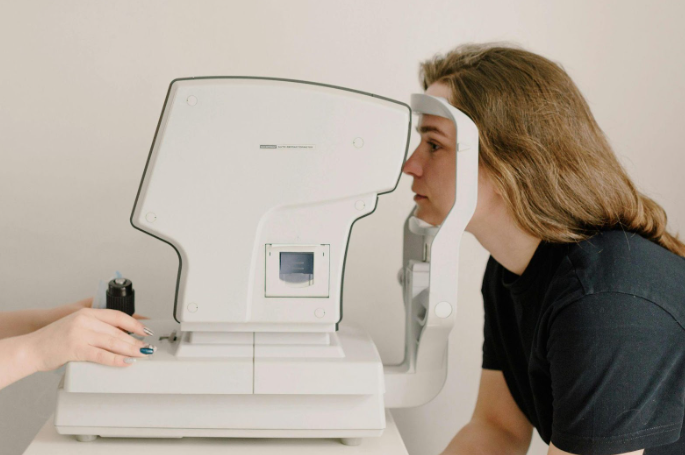5 Things To Know About Heavy, Drooping Eyelids
 Do you ever look in the mirror in the morning and think, “Wow, my eyes look really tired.” Heavy, puffy, or drooping upper eyelids seem to weigh your appearance down, and it would be great if they perked up as you wake up. However, as you later prepare for bed at the end of the day, you look in the mirror again and realize they look just the same.
Do you ever look in the mirror in the morning and think, “Wow, my eyes look really tired.” Heavy, puffy, or drooping upper eyelids seem to weigh your appearance down, and it would be great if they perked up as you wake up. However, as you later prepare for bed at the end of the day, you look in the mirror again and realize they look just the same.
Morning or night, day after day, your sagging upper eyelids are making you look older and more tired than you actually are, regardless of how many creams you use or sleep you get.
If this sounds like you, you’re certainly not alone. There’s a reason why eyelid procedures are the 4th most common cosmetic procedure performed in the U.S., according to a 2019 report from the American Society of Plastic Surgeons. Men and women alike recognize that drooping eyelids are affecting their appearance, as well as their vision in some cases.
Here are five things you should know about heavy, drooping eyelids:
1> Drooping eyelids can mean two different things.
The upper eyelids are supported by muscle, bone, and fat. When the muscle that opens the eyelid weakens, it causes the eyelid to sag or droop. This is called Ptosis . Ptosis is most commonly caused by aging, but it can also be congenital or can be caused by eye injuries, nerve damage, strokes, or masses. If your eye doctor mentions ptosis, he or she is referring to the muscles and their related tendons in your eyelid.
Not to be confused with ptosis, dermatochalasis occurs when the skin of your lid droops, not the entire eyelid , as in ptosis. Extra, drooping skin, and possibly fat, hangs over the lids and eyelids often appear puffy or swollen. This typically occurs with age as the skin loses elasticity and creates heavy folds that can actually sag over the lashes.
2> Heavy eyelids can affect your vision.
You may not be aware of it, but drooping eyelids—whether caused by ptosis or dermatochalasis—can limit your vision. When the lid or the skin on the lid covers part or all of the pupil, the upper field of sight and particularly your peripheral vision may be limited because the eye is exposed to less light. Drooping lids can also make it more difficult to read or drive, and can cause frontal headaches, dry eye, eye irritation, and dermatitis.
3> Drooping eyelids can be surgically corrected.
Even the most severe cases, drooping eyelids can be corrected to restore a more youthful, energized appearance. Surgery for ptosis or blepharoplasty is performed as an outpatient procedure in your ophthalmologist’s office or in a surgery center. Depending on the severity of the drooping lids, the surgeon makes adjustments to the muscles and/or removes extra skin and fat to help the eyelids lift properly.
4> Insurance may cover surgical procedures.
When heavy, drooping eyelids are affecting your field of vision, treatment is considered medically necessary, meaning that insurance typically covers the procedure. Most patients assume that eyelid surgery is purely for cosmetic purposes, but surgery is considered “functional” when your vision is affected. Your surgeon can perform visual field testing in the office to determine if drooping lids are obstructing your field of view.
5> Non-surgical procedures can also help.
In addition to surgery, there are also nonsurgical procedures that can help correct the appearance of droopy eyelids in some cases. Injections such as Botox and hyaluronic acid fillers can help tighten sagging skin and smooth out wrinkles around the eyes. For some people, a combination of surgical and non-surgical procedures yields the ideal results for both upper and lower eyelid restoration.
Consulting with an oculoplastic surgeon , which is a specialty within ophthalmology, is your best bet for achieving natural results to look like a younger you, rather than that you’ve had something “done.”
If you’re concerned about droopy eyelids, know that there are procedures that can correct this condition. At Baptist Eye Surgeons, Dr. Anzeljc performs both functional and cosmetic procedures such as ptosis repair and blepharoplasty to lift eyelids and reduce eye bags, Botox for wrinkles, filler injections, and brow lifts. He sees daily how cosmetic procedures are becoming more commonplace for men as well as women.
Baptist Eye Surgeons is an ophthalmological practice dedicated to providing quality eye care to patients whose needs range from routine comprehensive eye examinations to the treatment of complex eye diseases. To request an appointment or get directions to our Knoxville and Morristown locations, visit our website. Call us at 865-579-3920 for more information or visit us online to schedule an appointment.





